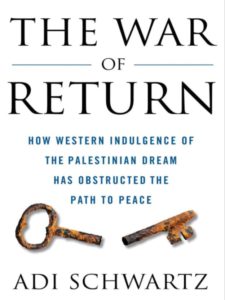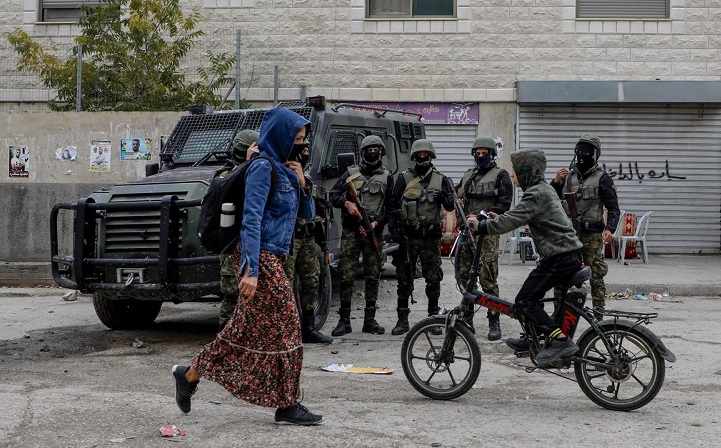‘‘How could anything new possibly be said about the Arab-Israeli conflict?’’ Adi Schwartz and Einat Wilf ask in the opening sentence of The War of Return, a compact, incisive and path-breaking book.
As it happens, there is quite a bit to be said, once one moves beyond the cliches of entrenched polemics. Like Padraig O’Malley, five years ago, in The Two-State Delusion, Schwartz and Wilf break new ground, by digging deeper and being relentlessly honest. The result is a bracing and highly constructive piece of writing.
 The authors both come from the liberal Left of Israeli politics, not from the hard-line Right. Wilf was a Labour Party member of the Knesset who worked closely with Israeli leaders such as Shimon Peres and Yossi Beilin, the architect of the Oslo Accords (of which the Right has been very critical). Schwartz is a journalist who has worked for a decade at Haaretz, a left of centre Israeli newspaper. They were prompted to research and write this book out of frustration at the perennial failure of peace negotiations. “What we discovered,” they write, “actually surprised us both.”
The authors both come from the liberal Left of Israeli politics, not from the hard-line Right. Wilf was a Labour Party member of the Knesset who worked closely with Israeli leaders such as Shimon Peres and Yossi Beilin, the architect of the Oslo Accords (of which the Right has been very critical). Schwartz is a journalist who has worked for a decade at Haaretz, a left of centre Israeli newspaper. They were prompted to research and write this book out of frustration at the perennial failure of peace negotiations. “What we discovered,” they write, “actually surprised us both.”
That surprise has generated a powerful and original argument. That argument has three component parts:
The greatest obstacle to a peace settlement is not Israeli settlements on the West Bank, but the Palestinian insistence on a “right of return” of all Palestinian “refugees” to territory within the pre-1967 borders of Israel, to which in fact they do not have a right.
Read the article by Paul Monk in The Australian.

